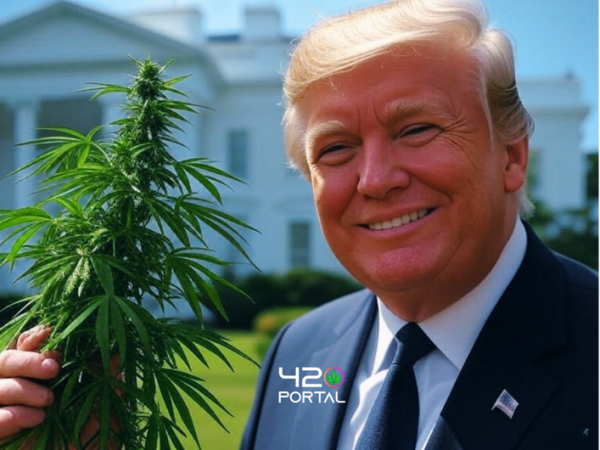Trump Considers Shifting Federal Marijuana Policy to Align with State Legalization Trends

08/15/2025
President Donald Trump is reevaluating the federal classification of marijuana, potentially shifting it to a less restrictive category. This move could align federal policy more closely with practices in numerous states, where marijuana has gained acceptance for medical and recreational purposes.
Currently, marijuana is classified as a Schedule I drug under federal law, placing it alongside substances like heroin and LSD, deemed to have high abuse potential and no accepted medical use. Possession remains a federal offense, with penalties including fines and imprisonment. Selling or growing it can lead to severe sentences, ranging from several years to life, based on the quantities involved.
The proposed change would reclassify marijuana to Schedule III, grouping it with drugs like ketamine and certain steroids that have recognized medical value but still carry risks. This adjustment stems from a prior administration's initiative, which involved extensive public input and regulatory review. However, the process stalled, prompting the current administration to revisit it.
Reclassifying marijuana wouldn't legalize recreational use nationwide. Instead, it would alter the regulation and taxation frameworks. Businesses in the cannabis industry, operating legally in states, could benefit from tax deductions currently denied due to federal restrictions on Schedule I substances. This could result in substantial savings for licensed operations. Additionally, research into marijuana's effects and benefits would become easier, as studying Schedule I drugs faces significant hurdles.
At the state level, medical marijuana is permitted in 40 states and the District of Columbia, with 24 states and D.C. allowing recreational use for adults. Despite progress, recent ballot measures in some states failed to expand legalization, reflecting ongoing debates. Efforts continue in other areas to advance reforms through voter initiatives or legislation.
Public opinion strongly favors change, with surveys showing about two-thirds of Americans supporting nationwide recreational legalization. Usage has risen, particularly among adults over 26, though young adults aged 18-25 report the highest rates.
Reference
Currently, marijuana is classified as a Schedule I drug under federal law, placing it alongside substances like heroin and LSD, deemed to have high abuse potential and no accepted medical use. Possession remains a federal offense, with penalties including fines and imprisonment. Selling or growing it can lead to severe sentences, ranging from several years to life, based on the quantities involved.
The proposed change would reclassify marijuana to Schedule III, grouping it with drugs like ketamine and certain steroids that have recognized medical value but still carry risks. This adjustment stems from a prior administration's initiative, which involved extensive public input and regulatory review. However, the process stalled, prompting the current administration to revisit it.
Reclassifying marijuana wouldn't legalize recreational use nationwide. Instead, it would alter the regulation and taxation frameworks. Businesses in the cannabis industry, operating legally in states, could benefit from tax deductions currently denied due to federal restrictions on Schedule I substances. This could result in substantial savings for licensed operations. Additionally, research into marijuana's effects and benefits would become easier, as studying Schedule I drugs faces significant hurdles.
At the state level, medical marijuana is permitted in 40 states and the District of Columbia, with 24 states and D.C. allowing recreational use for adults. Despite progress, recent ballot measures in some states failed to expand legalization, reflecting ongoing debates. Efforts continue in other areas to advance reforms through voter initiatives or legislation.
Public opinion strongly favors change, with surveys showing about two-thirds of Americans supporting nationwide recreational legalization. Usage has risen, particularly among adults over 26, though young adults aged 18-25 report the highest rates.
Reference







